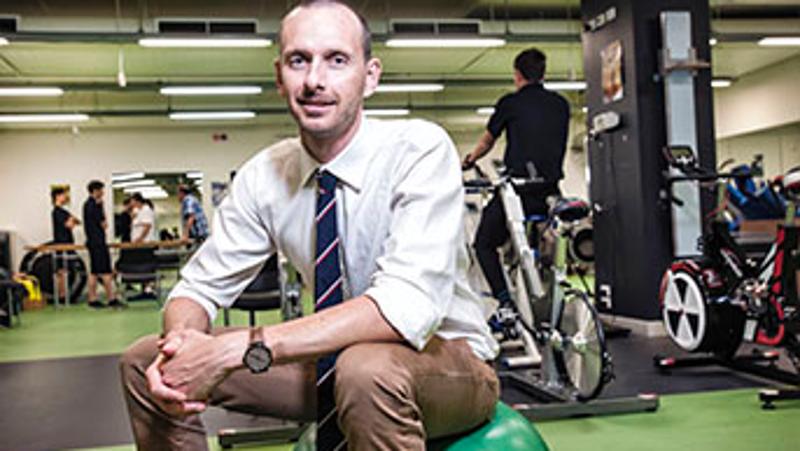
A novel trial at the QUT Health Clinics' exercise physiology clinic investigating the use of exercise to alleviate the symptoms of post-traumatic stress disorder (PTSD) is producing new findings on the needs of those with the condition.
QUT exercise physiologist Robbie Mullins is running the program for current or former defence personnel and first responders including ambulance, fire fighters, police and SES workers.
The program consists of 10 weekly individualised and supervised exercise training based on each person's health goals and has so far pinpointed background music and relaxation are important considerations.
"Defence people and first responders are some of the most prone to developing post-traumatic stress disorder (PTSD) because of the nature of their work," Mr Mullins said.
"This personalised exercise program is based on the findings that structured exercise, when augmented with usual care improves symptoms for people with PTSD and depression and also reduces their risk of cardio-metabolic disease.
"We look at exercise as an addition to psychological therapy and medication to help people recover from PTSD."
Mr Mullins said people with PTSD may experience symptoms such as anxiety, depression, sleep disturbance, being wound up and reliving the trauma. Often this can result in unhealthy lifestyle choices and raise the risk of metabolic syndrome, weight gain and cardiovascular disease.
"We are looking at the impact exercise has on their symptoms. Each participant's program includes aerobic activity, such as rowing, treadmill or cycling, and resistance training.
"Some of our participants have rehabilitation exercises for injuries. We found they have muscle, bone and joint concerns such as bad knees, shoulders and backs from deconditioning or from the physical demands that their occupation requires."
Mr Mullins said the trial would continue with enrolments until December and data would be analysed once all participants had completed their 10-week program.
"So far, we have learnt a lot from participant feedback, and that has helped us tailor supervised exercise sessions to suit this group's needs," he said.
"For example, the type of background music has been shown to be important, as well as the need for 15 to 20 minutes of quiet time at the end of a session with some yoga or stretching.
"The music should be changed or switched off at this time, steering away from the usual high-energy music of gyms, as it has been reported by participants to reduce agitation."
Mr Mullins said the fact none of the 18 participants had dropped out was suggesting that the program's flexible and participant centred approach to exercise was working.
"One of the key things we have come to realise is that our participants agree to join and have stayed with the program because they feel they are not going to be abandoned or taken advantage of," he said.
"It helps that it is being conducted by a university. When the trial ends this clinic will continue and be part of the QUT Health Clinics exercise physiology program. Participants will be able to continue for the normal clinic exercise class for a low-cost fee."
The program is free for eligible participants and is open to further participants from the defence forces or emergency response sector who have diagnosed PTSD and/or depression, PTSD symptoms or are at risk of PTSD.
The program is funded by the depression-support organisation White Cloud Foundation who are partners with QUT in its development and evaluation. The program employs Accredited Exercise Physiologist Andrew McWilliam to assess, prescribe exercise and engage the participants in their needs.
For more information contact the QUT Health Clinics reception on 07 3138 9777 healthclinics.qut.edu.au
Media contact: Niki Widdowson, QUT Media, 07 3138 2999 or n.widdowson@qut.edu.au
After hours: Rose Trapnell 0407 585 901


